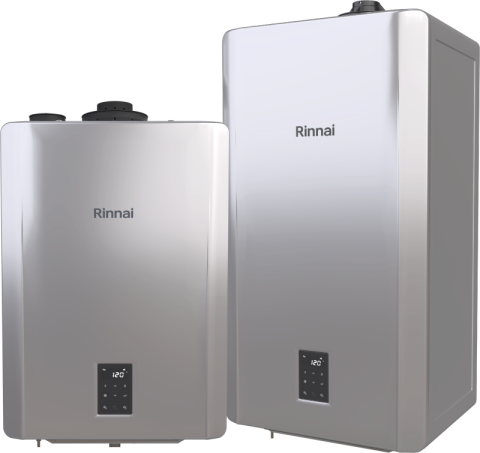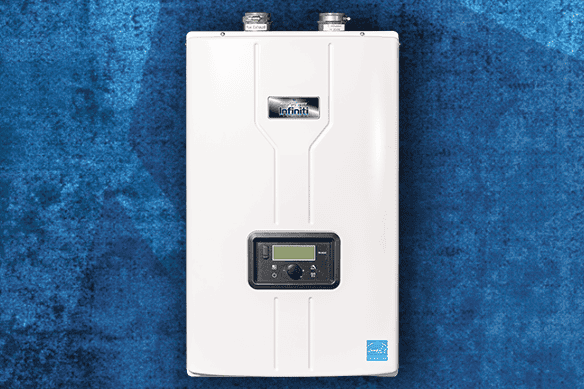How Tankless Water Heaters Elevate Homeowners’ Benefits
How Tankless Water Heaters Elevate Homeowners’ Benefits
Blog Article
The content underneath on the subject of Why You Should Consider a Tankless Water Heater is without a doubt stimulating. Read on and make your own personal ideas.

In a world where comfort and effectiveness preponderate, it's no surprise that homeowners are continuously on the lookout for smarter means to manage their home's energy consumption and convenience. One innovation that has steadily gained popularity is the tankless hot water heater. However exactly what makes these systems attract attention from the standard tank-based versions a lot of us matured with? Let's dive in and explore the benefits of tankless hot water heater, assisting you determine if it's time to make the switch in your home.
Intro
Image this: you step into the shower after a lengthy day, expecting a soothing cascade of hot water, only to be welcomed by icy beads because the last person utilized everything up. Sound familiar? Conventional water heaters store a fixed amount of warm water, implying you go to the grace of that tank's supply. Tankless systems, on the other hand, warmth water on demand. No more running out mid-shower, say goodbye to wrestling with schedules simply to ensure hot water is readily available.
Understanding Tankless Hot Water Heater
What Are Tankless Hot Water Heater?
Tankless water heaters, sometimes known as on-demand or instant hot water heater, offer warm water just as it's required. Instead of storing gallons of pre-heated water, these units kick into action the moment you switch on the faucet. Water goes through a heat exchanger, warming up in real-time, indicating you get an uninterrupted flow of warm water without the need for a large storage tank sitting lazily by.
Just how Do They Vary from Conventional Systems?
Standard heating systems hold a tank of warm water, making use of power to maintain that container at a regular temperature. Tankless devices eliminate the standing supply, minimizing thrown away energy and the cumbersome impact of a large cylinder. Essentially, you're upgrading from a "stockpile" state of mind to a "made-to-order" strategy.
Common Kinds Of Tankless Systems
Tankless hot water heater normally can be found in 2 selections: gas and electric. Gas models often tend to supply higher flow prices, ideal for larger houses, while electric designs often offer smaller homes and are normally easier to set up. Furthermore, some systems are made for point-of-use (serving one component) while others can take care of the entire home's hot water demands.
Key Benefits of Tankless Hot Water Heater
Energy Effectiveness and Price Financial Savings
Say goodbye to warming a giant tank's worth of water and keeping it cozy all the time. Tankless heating units reduce standby energy losses, which can reduce energy costs. While the preliminary price may be higher, the long-lasting savings often validate the investment.
3. Space-Saving Design
If your home is short on storage, eliminating the cumbersome storage tank liberates beneficial room. Tankless units are portable and can frequently be installed on wall surfaces, hidden in corners, or installed in limited energy closets without having all to oneself the whole space.
4. Longer Life expectancy
A well-maintained tankless hot water heater can outlive its tank-based cousin. Traditional containers may last 10-15 years, while tankless versions can keep downing along for twenty years or more, making them a strong financial investment in time.
1. Endless Warm Water Supply
Ever before had to arrange showers so everyone gets their reasonable share of hot water? With tankless, that comes to be a distant memory. As long as the heating unit's circulation capacity isn't gone beyond, you can take back-to-back showers without turning into a popsicle.
5. Improved Water Quality
Keeping water in a container can sometimes bring about debris accumulation or a somewhat "off" taste. With tankless systems, fresh water is heated up instantly, lowering the chances of debris build-up and potentially offering cleaner-tasting water.
Factors to consider Before Changing
Though the benefits are compelling, it's wise to think about a couple of elements prior to completely devoting.
Reviewing Your Home's Water Usage Patterns
If your family at the same time utilizes numerous fixtures with high warm water need, ensure the system's flow rate fulfills your needs. Knowing your use patterns helps you pick the right dimension and type of tankless heating system.
Maintenance and Care Tips
Tankless systems are reasonably low maintenance, however they aren't set-it-and-forget-it home appliances.
Regular Cleansing and Descaling
Difficult water minerals can develop in the warm exchanger, influencing performance. Normal descaling (often recommended annually) keeps the device performing at peak performance.
Yearly Specialist Assessments
A yearly checkup from a specialist ensures minor problems are caught early. They'll examine the device's efficiency, try to find leakages, and aid keep ideal performance.
First Investment Prices
Tankless heating systems commonly include a higher ahead of time price. Between the system itself and possible setup adjustments, the preliminary expense could offer you sticker shock. But bear in mind to see it as a lasting financial investment.
Setup Requirements
Depending upon your home's framework, you may require added electric ability or gas line upgrades. Ensure you recognize the installation demands and seek advice from an expert to avoid shocks.
Guaranteeing Proper Air Flow
For gas versions, proper air flow is necessary to securely remove exhaust gases. See to it venting systems are tidy and properly set up to prevent any possible security risks.
Contrasting Different Brands and Designs
Not all tankless hot water heater are created equal.
Investigating Trustworthy Manufacturers
Search for reputable brand names with a background of producing high quality units. A trustworthy manufacturer commonly supplies far better consumer assistance and longer service warranties.
Setup: DIY or Professional?
While some house owners cherish taking on tasks themselves, tankless installment may not be the very best time to break out the tool kit.
Benefits and drawbacks of DIY Installment
A DIY set up could save money, yet it comes with threats. Inaccurate setup can cause inadequacy or safety and security concerns. If you're handy and have experience, it could be feasible-- but wage caution.
Checking Out Evaluations and User Responses
Individual testimonials and responses from neighbors or friends that have gone tankless can provide useful insights. In some cases, real-life experiences can be extra telling than advertising and marketing sales brochures.
When to Call a Professional Plumbing
For many, calling a professional makes certain every little thing's done appropriately. An expert plumbing professional understands neighborhood codes, sizing requirements, and airing vent criteria, minimizing the risk of accidents.
Optimizing Performance
You've bought a tankless device-- currently optimize its effectiveness.
Optimal Temperature Level Setups
Most people establish their devices between 120-140 F. Readjusting the temperature level can boost comfort and cost savings. Experiment to find a sweet area that does not waste power.
Coupling With Low-Flow Fixtures
Wish to extend your system's capabilities? Think about mounting low-flow showerheads and taps. They lower water usage, enabling your tankless system to deliver a consistent stream of hot water without straining.
Ecological Impact
Tankless water heaters line up with greener living goals.
Lowered Carbon Impact
By utilizing much less energy and only home heating water as required, tankless systems can lower your home's carbon impact, minimizing your ecological effect.
Preserving Natural Resources
Less power usage and much less squandered warm water equate right into less natural deposits being used, an environmental win-win.
That Benefits Many from Tankless Heaters?
The charm of tankless heating systems is that they can match a variety of houses.
Big Households vs. Solitary Owners
Large households may enjoy the countless hot water supply, while single residents appreciate the power financial savings from not heating an entire tank for simply a single person's early morning shower.
Home Owners with Minimal Room
If your home is short on square video footage, losing the large container liberates space for various other basics-- or possibly simply a lot more elbow room.
Eco-Conscious Consumers
Going tankless aligns with environmentally friendly values, guaranteeing you're not squandering energy or sources.
Future Trends in Tankless Water Heaters
The world of home devices is ever-evolving, and tankless water heaters are no exemption.
Advancements in Modern technology
R&D is frequently enhancing heat exchangers, making devices much more reliable and resilient. Future versions may be also quieter, much more portable, and better matched for differing climates.
Smart Home Integration
Picture adjusting your water heater's temperature level using an application or obtaining upkeep notifies on your phone. As clever home technology breakthroughs, we'll see more connectivity and comfort.
Final thought
Choosing a tankless water heater is greater than just updating your home's hot water system; it's investing in long-term comfort, power efficiency, and a greener way of living. By considering your household's water usage, bearing in mind setup demands, and dedicating to regular maintenance, you can enjoy a constant stream of warm water without the luggage of a cumbersome storage tank. As technology advances, you can eagerly anticipate even smarter, much more efficient tankless remedies that not only make your life easier yet also profit the earth.
Pros and Cons of Tankless Water Heaters
Tankless Water Heater Pros
Saves Energy: Simply put, you re spending less energy to create hot water, so your total carbon footprint goes down, not to mention your bills. Lasts Longer Than Storage Tanks: Storage tank units need to be replaced every 15 years or so. But tankless units? They can last for 30 years before they give out on you. Constant Hot Water: Need to take a shower and don t want the water running cold? Awesome it won t. The water will stay hot the entire time because it creates hot water on demand. Saves You Money: Less water usage equals less money. Beyond that, you re not paying to keep water hot 24/7. Those savings add up quickly. Better for the Environment: Less water waste is better for everyone. It saves you money, but it s also environmentally conscious at the same time. Tankless Water Heater Cons
It Can Take a Minute: Depending on your specific unit and its placement, it can take anywhere from 10 seconds to 2 minutes to fully heat up. Because there s no storage tank, it heats water as you need it. Upfront Purchase Price: While we talked about their longevity, there s sticker shock when you look at brand-new tankless units to install. It pays for itself, but it s still a big chunk of change at first. Has its Limits: If you run multiple appliances at once, such as the dishwasher, washing machine, and maybe you take a shower at the same time, there might not be enough hot water. https://www.airsouthnow.com/blog/water-heater-service/pros-and-cons-of-tankless-water-heaters/

I discovered that entry about Why You Should Consider a Tankless Water Heater while doing a lookup on the internet. Do you know about somebody else who is fascinated about the subject? Take a moment to promote it. Thanks a bunch for being here. Come back soon.
Call Today Report this page